Jana Koschak launched North Folk Mobile Café & Bakeshop in June 2016. The food truck—which specializes in locally-sourced brunch fare, pastries, and coffee—has already built a loyal following of enthusiastic customers in Vermont's Northeast Kingdom. We recently checked in to see how business is going and to hear about Jana's culinary journey from a small town in West Texas to the small farm where she currently lives with her husband, David, and their 16-month-old son, Sam.
What’s on the menu this weekend?
Buttermilk waffles—they’re always a big hit. Mushroom toast, which is our most popular egg dish. Then there’s biscuits and sausage gravy, an homage to my Texas roots. The avocado toast is a new addition, and it’s also super popular. It’s similar to the mushroom toast but has smashed avocado and some lemon. I make homemade granola and yogurt for people who just want something cold and light. We also do eggs and bacon, which allows the menu to have something for everyone. Oh, and doughnuts! Some people come just for the doughnuts. They always sell out.
Why did you decide to focus on brunch?
I just like brunch food. I like cooking eggs, and I like mornings. Four in the morning is the perfect time to work. Brunch is also a great way to showcase local food. To be able to have a simple menu with local ingredients was really appealing to me. Also, there was nowhere to get a good cup of coffee and breakfast around here. It just felt like a huge void in the market, and it’s something that I really enjoy doing.
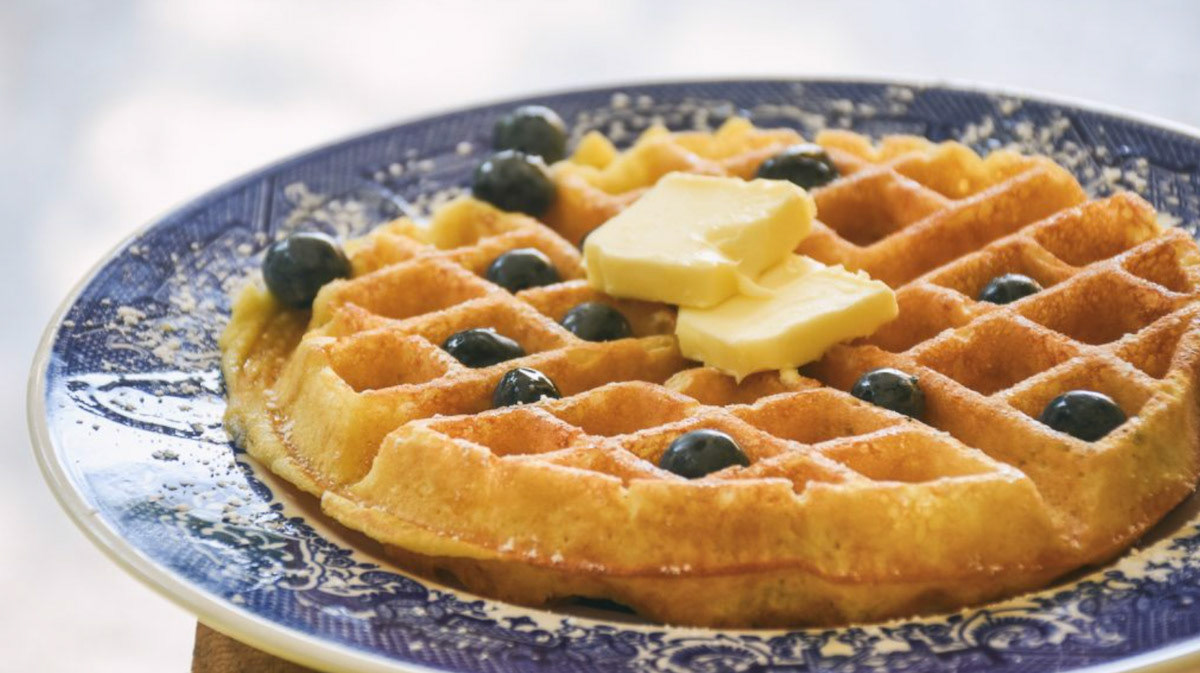
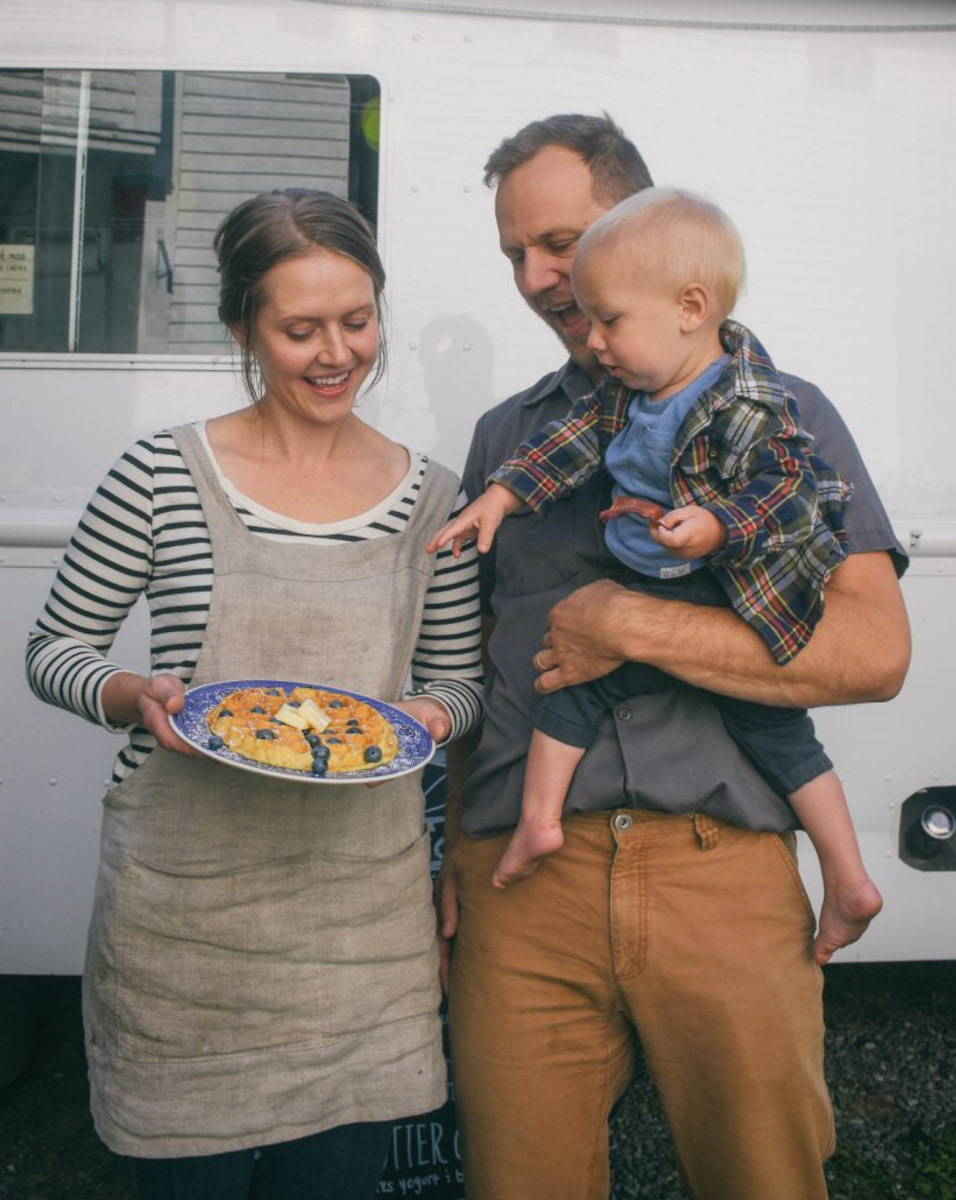
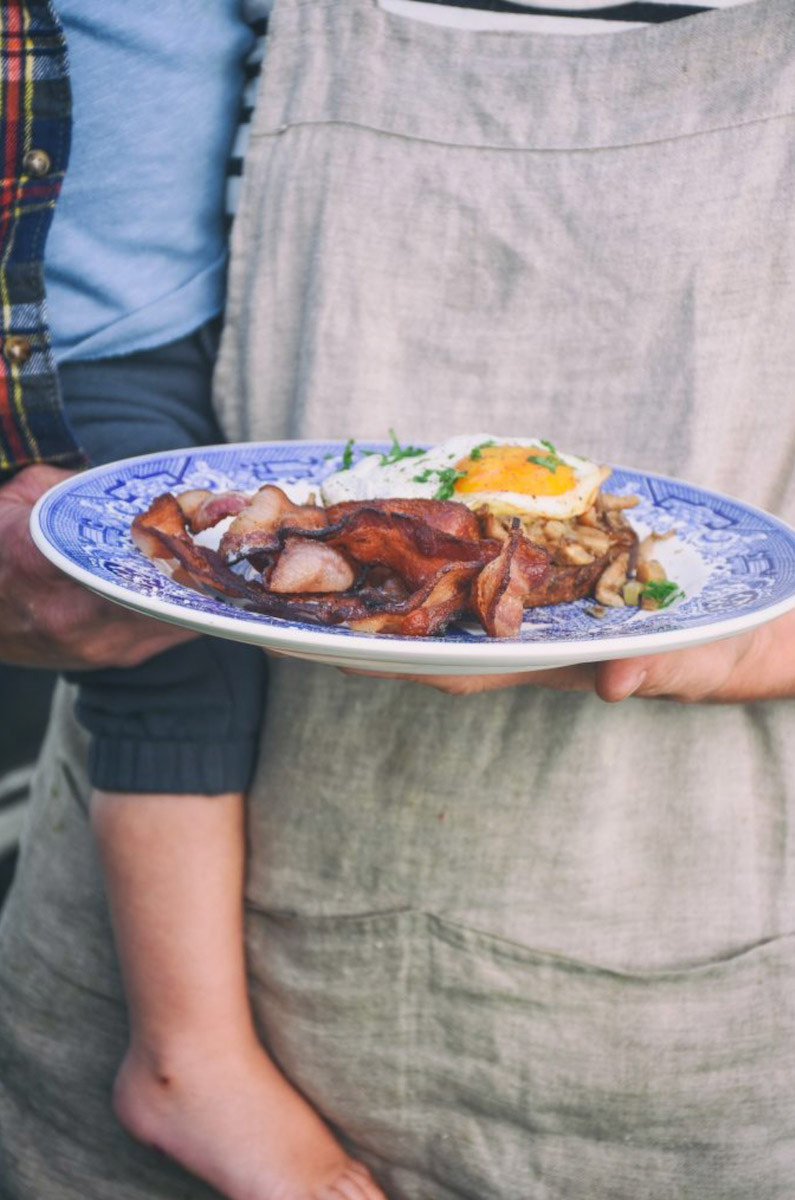
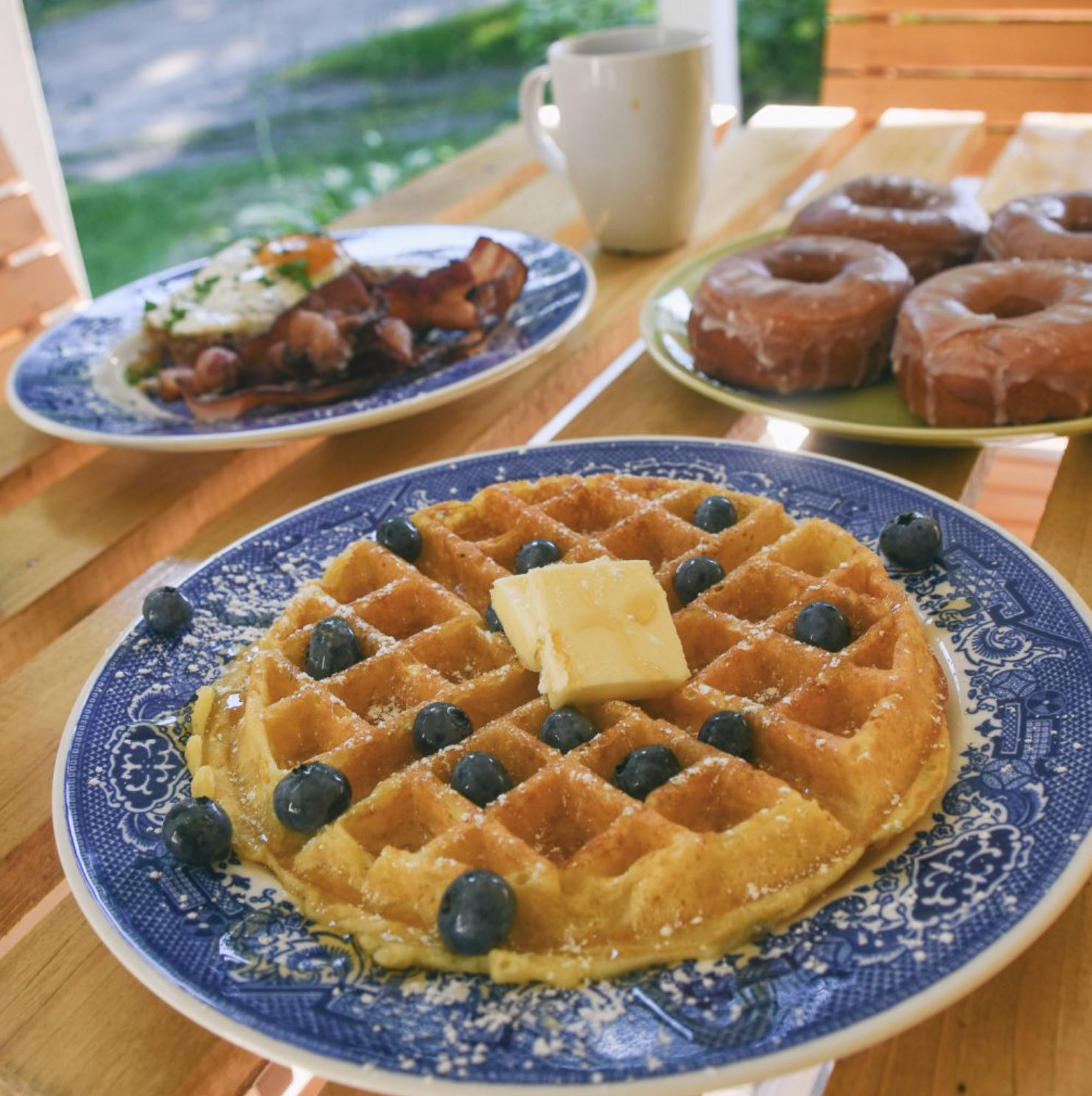
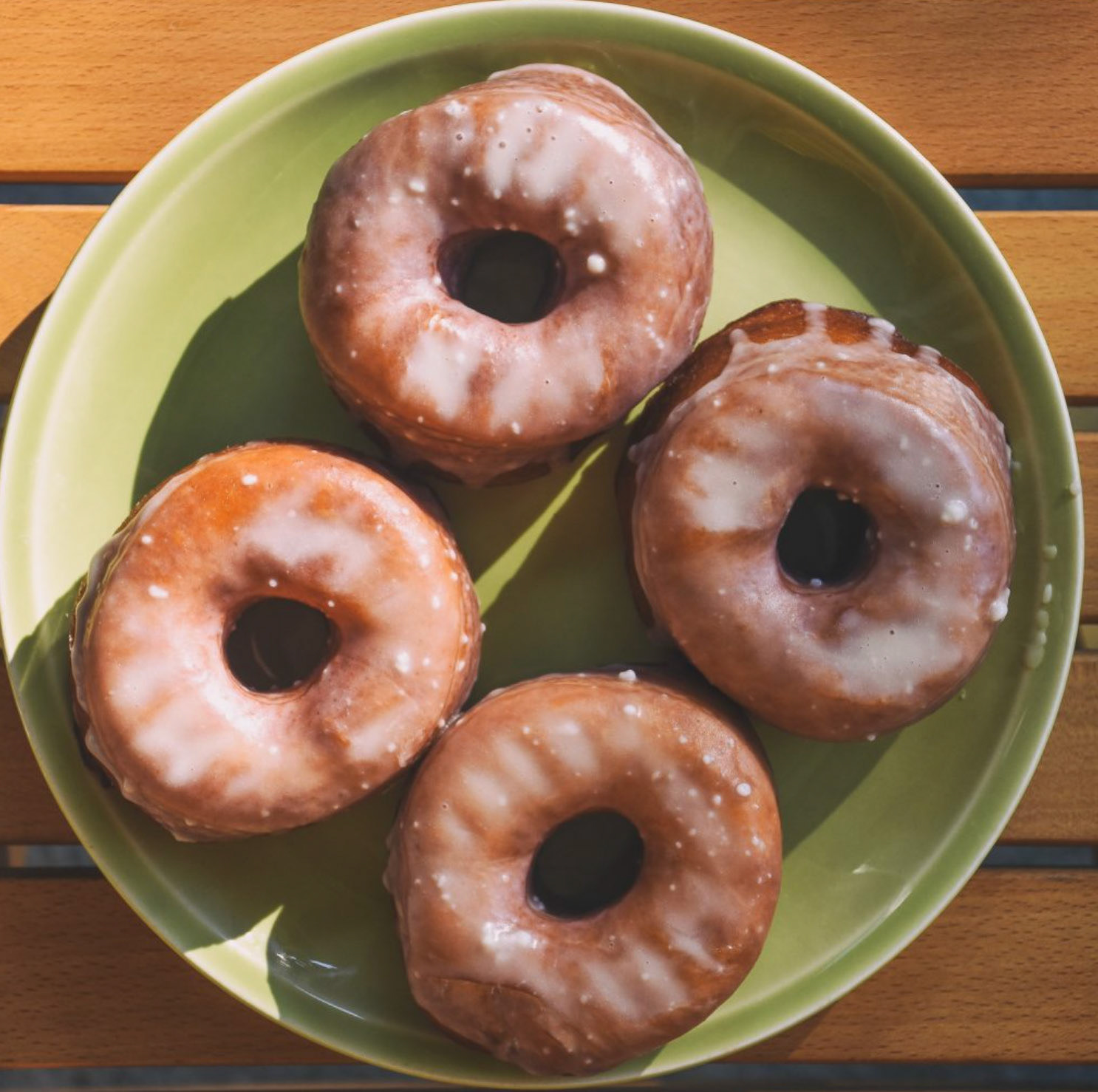
Where are you sourcing your ingredients?
The eggs come from our chickens right here on the farm. Every week I get oyster mushrooms from Kris and Glen Coville of Wild Branch Farm—they have a man-made mushroom cave. The bread comes from Patchwork Farm & Bakery. The bacon comes from VT99 Meats, which is a collaboration between Pete’s Greens and Jasper Hill—they feed the pigs whey from the cheese-making and vegetables from the farm, which helps cuts down on waste. The flour is from King Arthur—the product isn’t necessarily grown or milled here, but it’s a local company. The butter is from Cabot, the milk is from Sweet Rowen, and the coffee comes from Brio, a roaster out of Burlington. The blueberries and maple syrup come from our neighbors. So, pretty much everything is local!
Have you experimented much with your menu offerings?
Originally, I had eggs Benedict on the menu. It was pretty popular, but it’s incredibly time-intensive, and the margin isn’t great on it. It’s difficult to pull off in the truck—I have to poach all the eggs beforehand, and the hollandaise sauce is very finicky. I’m thinking I may put that one to bed for a bit.
Do you cook everything by yourself in the truck?
I do everything made-to-order, but I usually have help. Simeon Bittman, executive chef at Sterling College, is a good friend and he helps me out sometimes. I also have someone who just started yesterday. He’s really interested in food, and he’s just a great presence in the kitchen and a great cook. His first day went awesome.
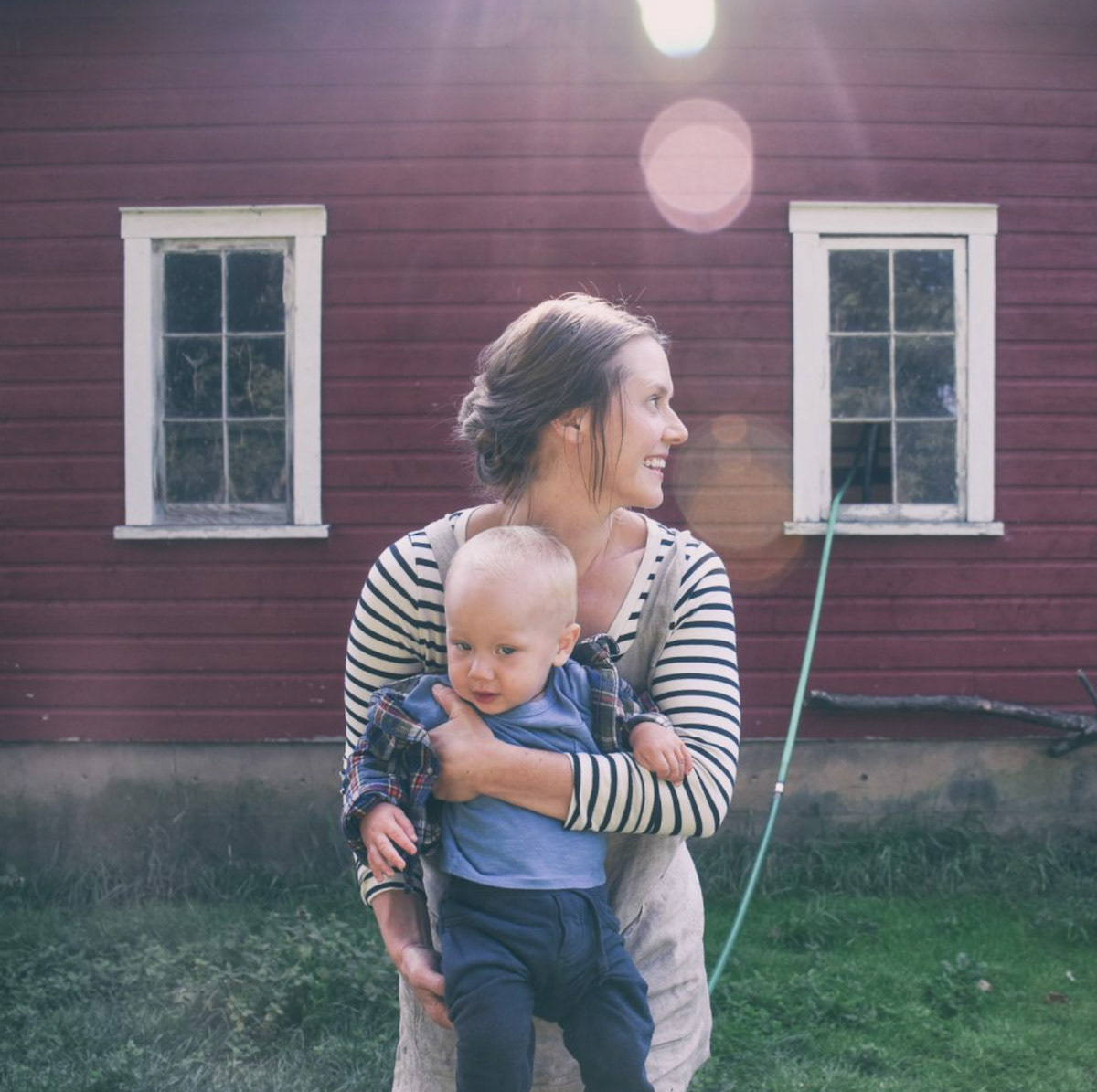
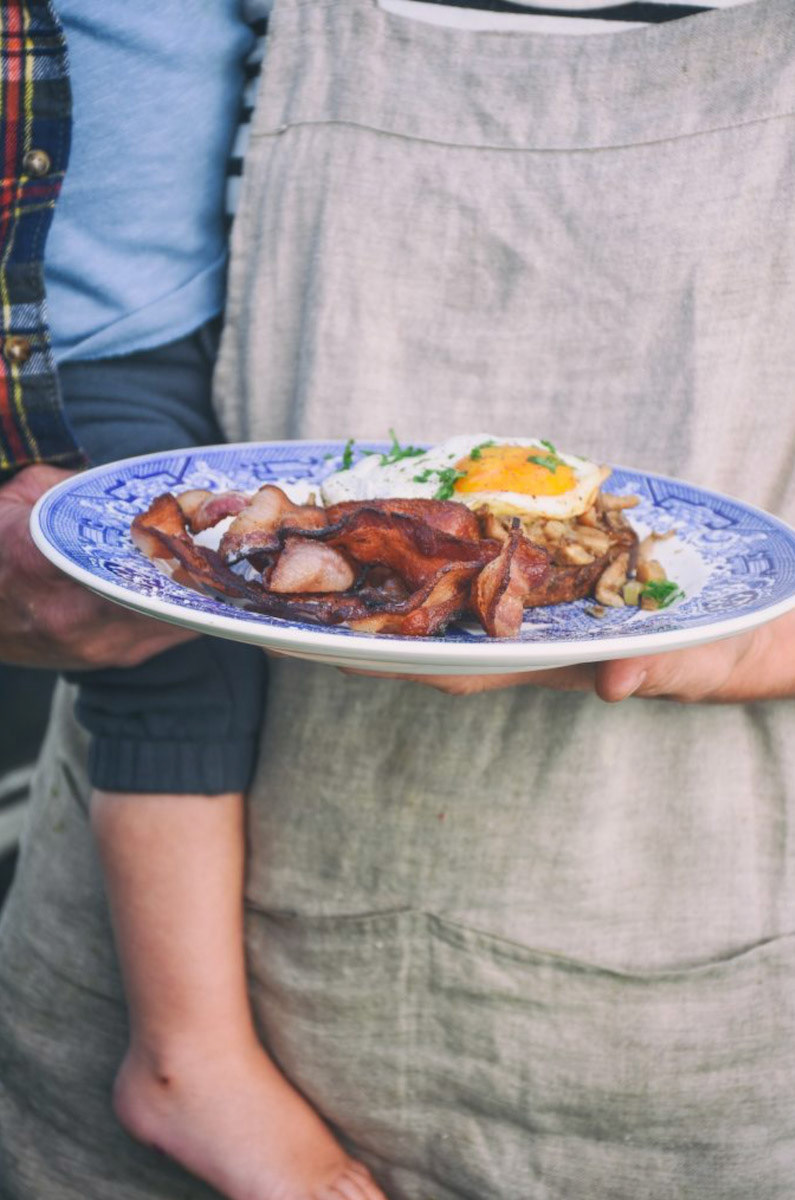
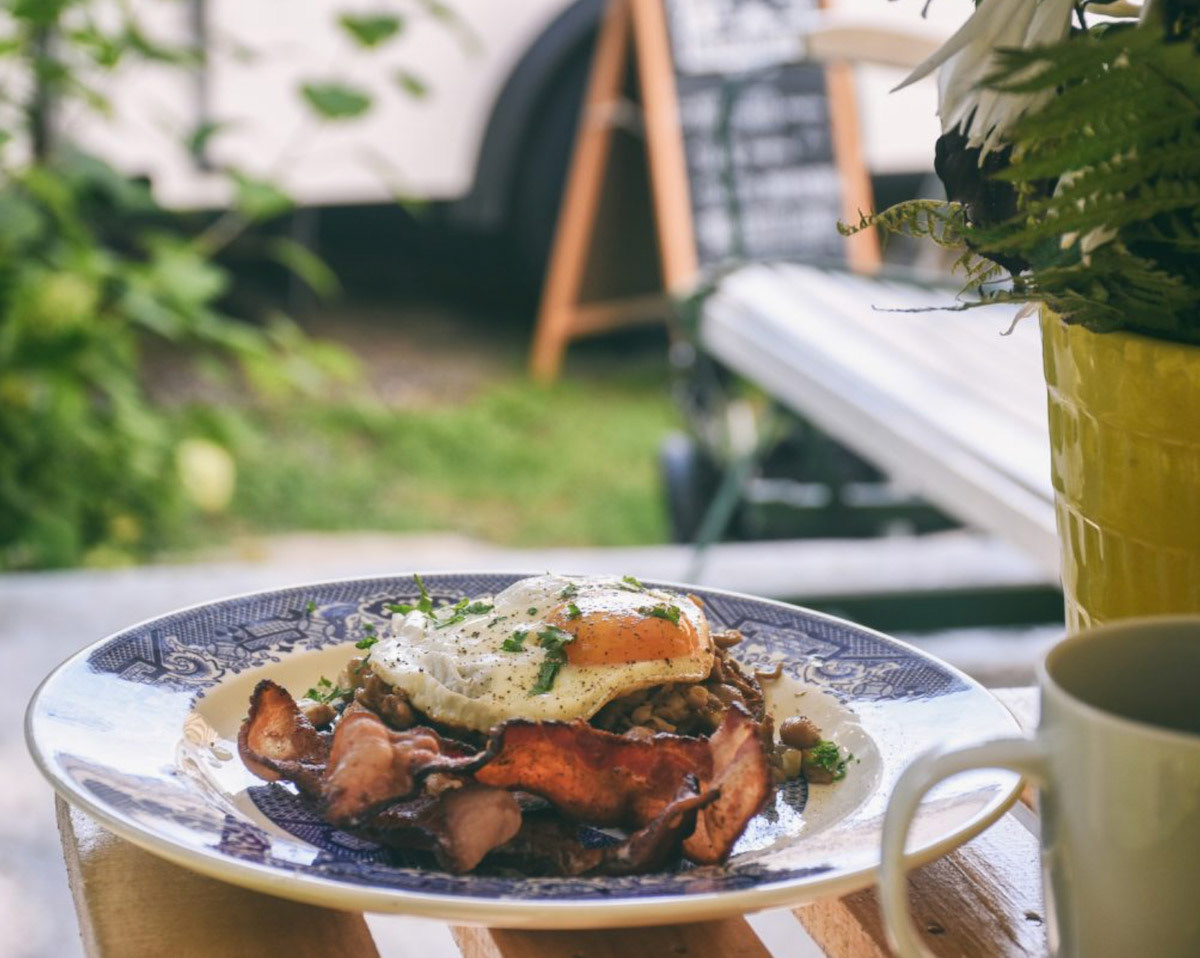
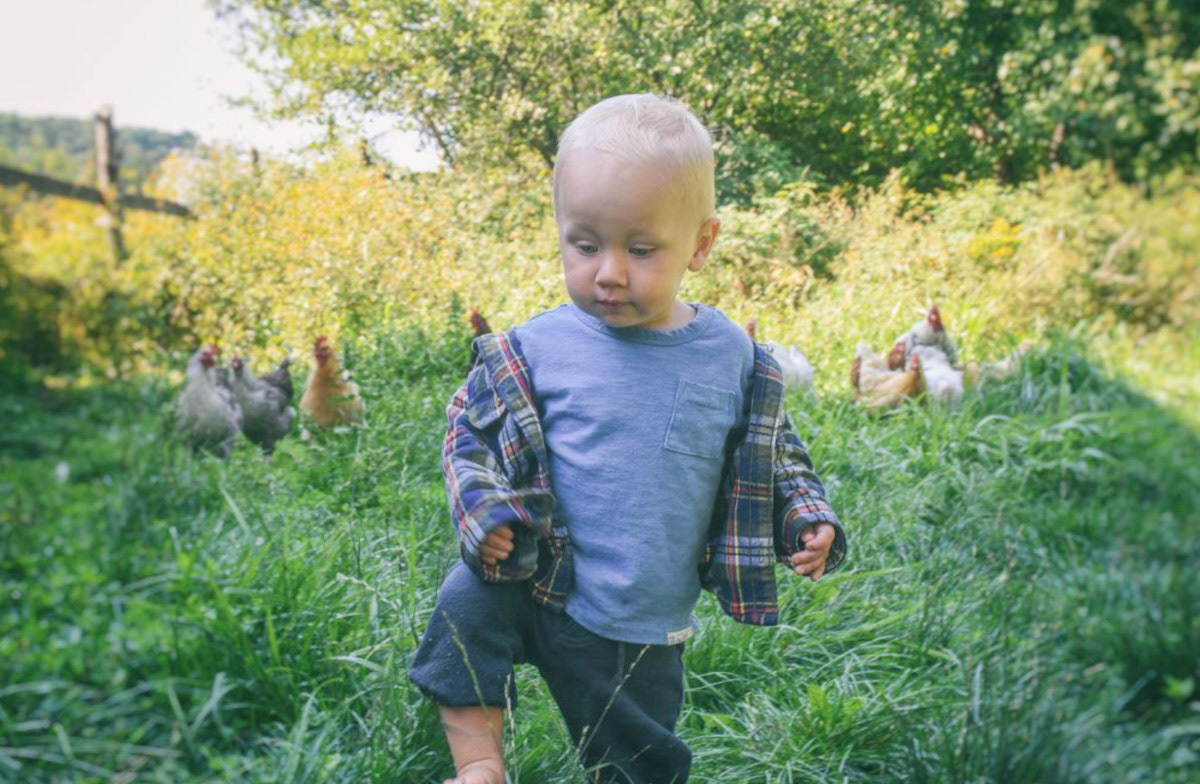
How did you get into cooking?
The first thing I learned how to make was gravy. I have a very vivid memory of my mom showing me how to make it. My mom and grandma both cooked a lot—breakfast, lunch, and dinner, everyday.
What part of Texas are you from?
Iraan. It’s a tiny town in West Texas, in the Chihuahuan Desert. Very remote. And it’s a literal food desert, too. Besides watermelons, they don’t really grow food there. The food back home was obviously very different from what I’m making and eating now, but I was always interested in food and I loved to cook. Even in college—I was probably the only person I knew with a Kitchen-Aid in their apartment. I would make éclairs and throw dinner parties for my friends.
Did you go to culinary school?
I studied business at Texas Tech. I worked in a kitchen during college and contemplated going to culinary school, but I opted to just get experience. I always knew that I wanted to be an entrepreneur, so I wasn’t going to go the institutional kitchen or restaurant route. When I graduated, I turned down an $80,000 a year job in oil and gas—I couldn’t see myself working in an office. I’ve always had a pretty adventurous spirit, and even though I didn’t know a lot about the world, something told me that wasn’t what I wanted to do.
What did you decide to do?
There’s a big Turkish community in Lubbock and a language center that offers free classes. I didn’t know anything about Turkey, but I went to the class and fell in love with the culture and the people and the language. I decided to teach English in Turkey—that’s where I really got into cooking. I had a month off during Ramadan, so I took a trip to this little village in the mountains where I stayed with a woman who offered a very informal Turkish cooking school. We cooked three meals a day using ingredients from her garden. We milked her goats and made cheese. She also sundried her own tomatoes on the roof, and she had an olive tree and would press her own olive oil. We made this dish called manti, which are little dumplings stuffed with potato or meat or cheese. It’s incredibly tedious and takes hours to make enough for a family. I remember sitting there on the floor, making manti, and thinking, This is awesome. This is what I should be doing.
What did you do when you returned to the States?
I started working as an intern on an organic vegetable farm outside Philly called Blooming Glen. I became their farm chef and also created recipes every week for the CSA members, using farm ingredients. I would create a recipe, take a photo, and write a little spiel about it. That farm experience was my training ground. It’s also where I met David.
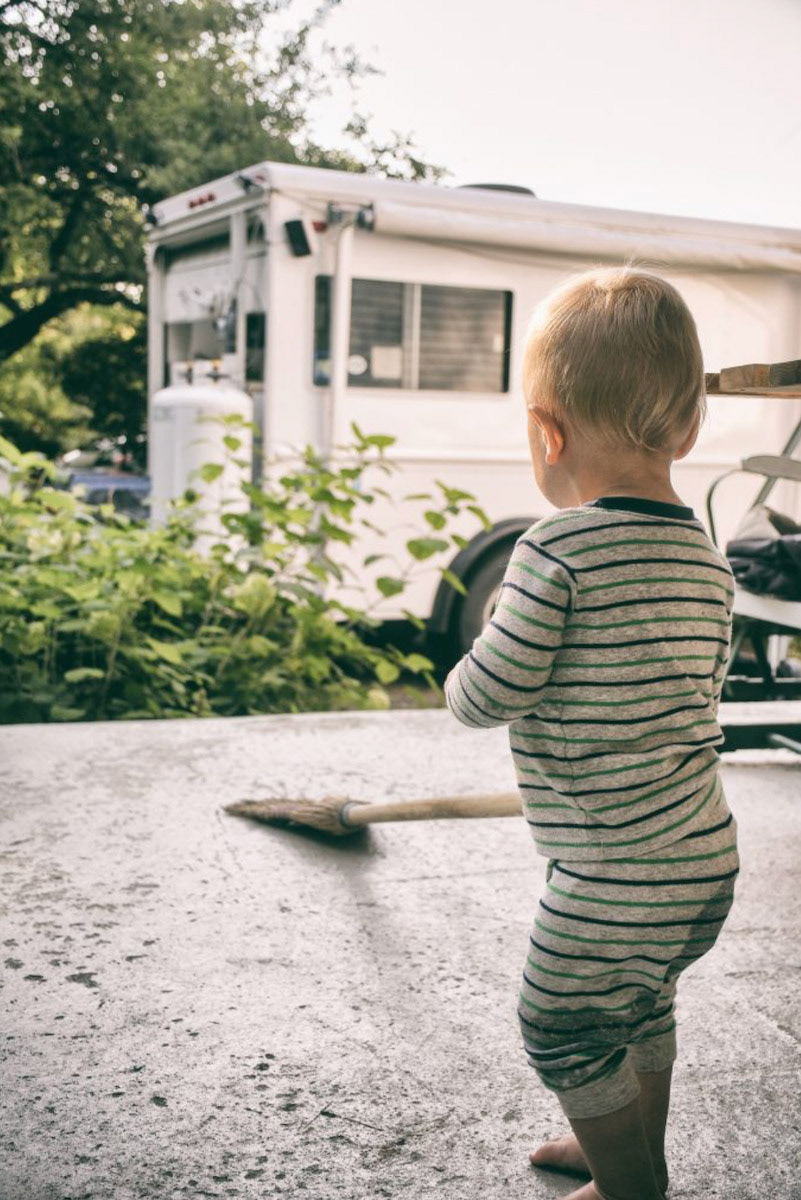
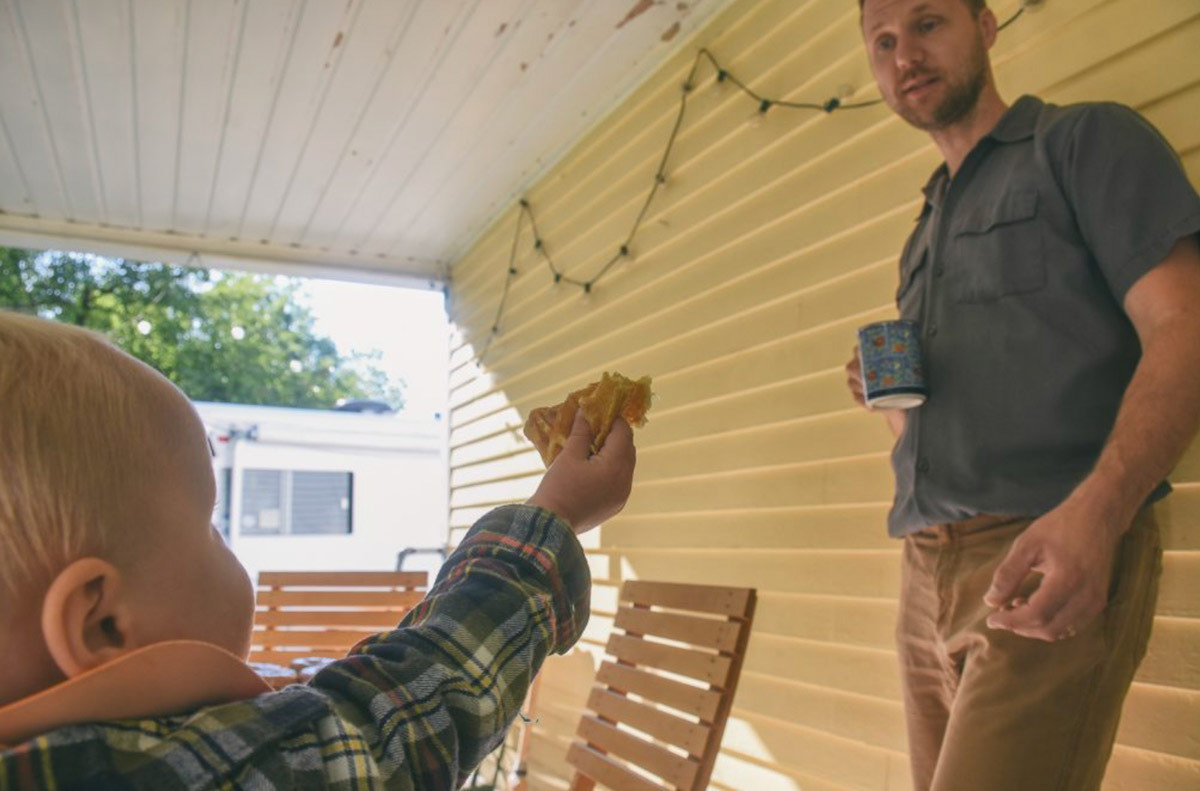
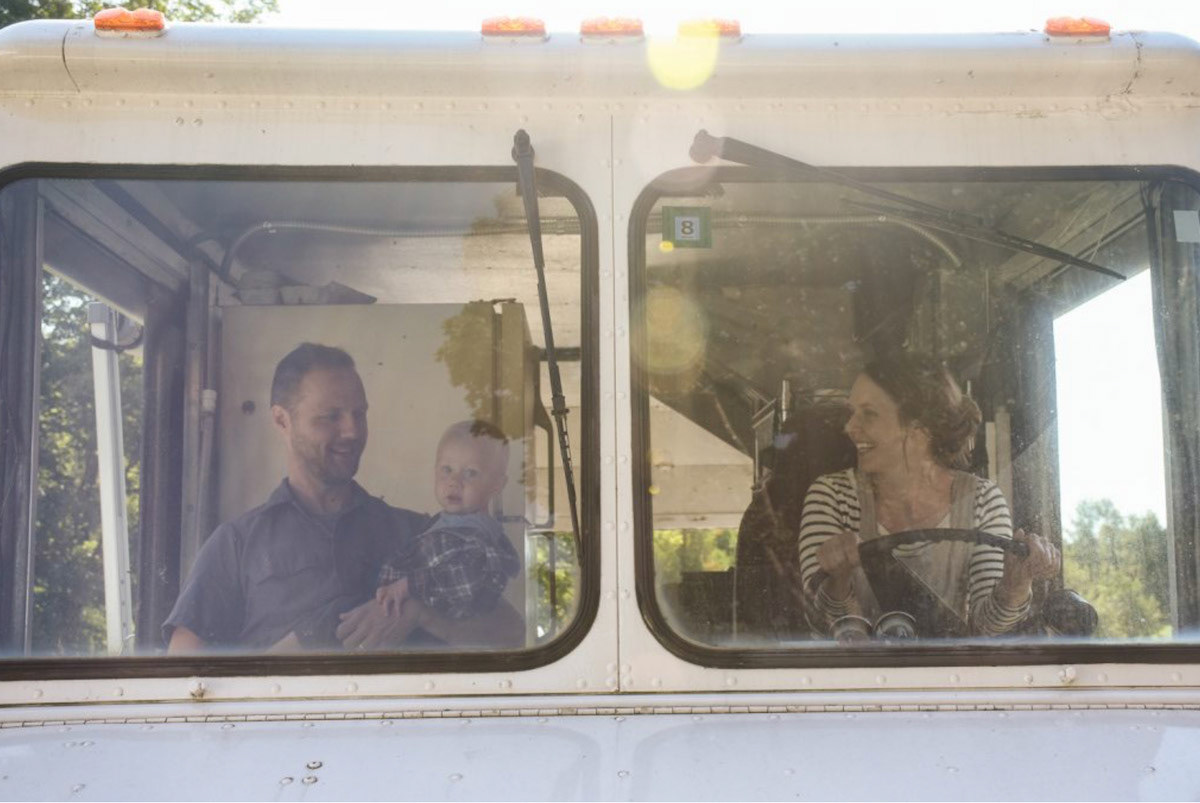
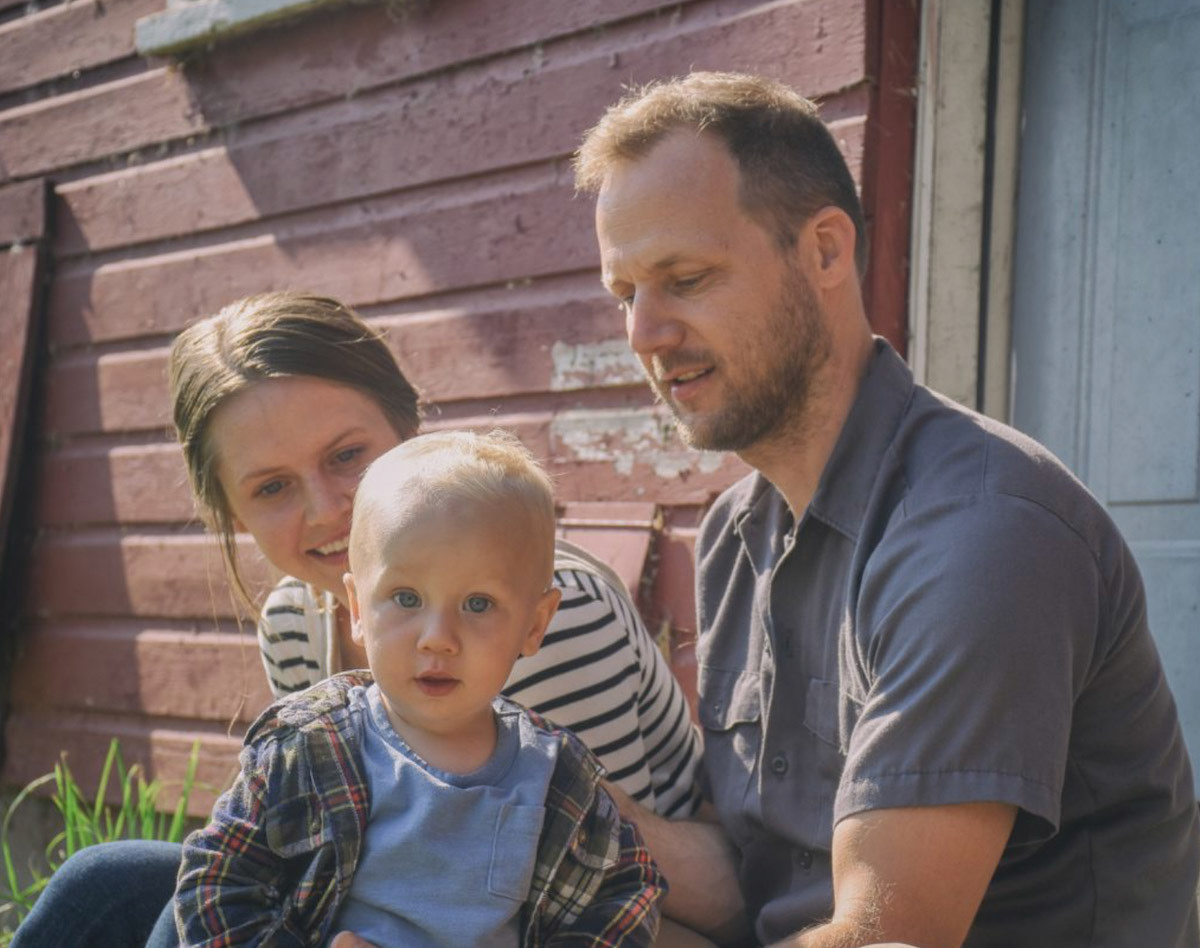
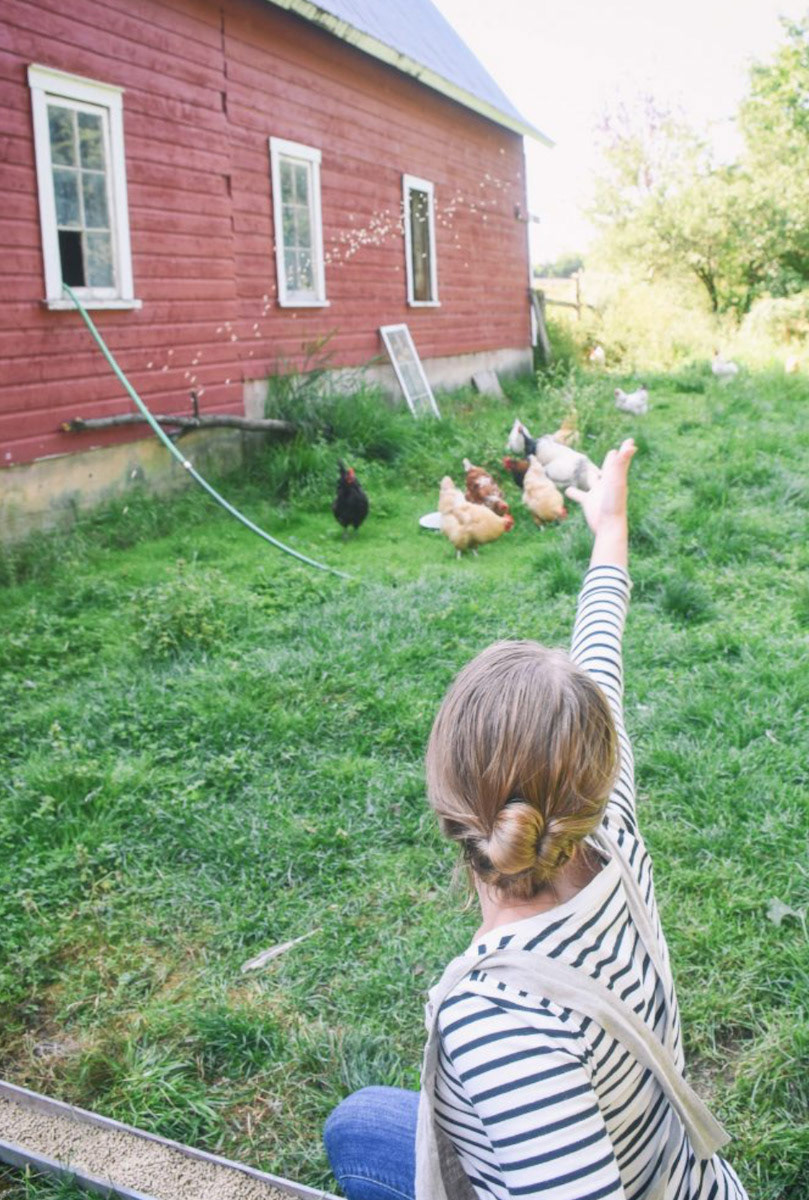
Was there some sort of meet cute while harvesting veggies?
I worked there for a year before David got there, and when he arrived he just ignored me for the first month while we were working together. I was, like, this guy is rude. But he had a girlfriend, and I had a boyfriend. Then, without even talking to each other about it, we both promptly dumped our significant others, and over the next few months we started having conversations while trellising tomatoes.
Where did you go after that farm gig?
We were floating for a while. We looked at a lot of different jobs: a goat dairy, an orchard, a commercial pig farm in Lancaster. There was a wealthy family that bought this estate outside Philly and wanted caretakers to start a farm on it.
That sounds like it wouldn’t have ended well. Remember Foxcatcher?
Well, we had a lot of options, and eventually decided to come up here to Vermont four years ago. I was having a hard time reconciling my farming desires with my culinary desires, so I tried to combine them by becoming a cheese maker. Then I worked at a goat dairy and decided it wasn’t for me.
What drew you back to the kitchen?
Cheese making was a great experience but it was more solitary than what I was used to. I needed more variety and more interaction with people, and I just missed being in a kitchen. There’s something about it—like whenever I go to a restaurant, I always have a strong impulse to look in the kitchen and see what it’s like in there.
Did you go back to cooking after leaving the goat dairy?
We left Vermont when David found a job with an architecture firm in the Hudson Valley, and I started working as a baker. I fell in loving with baking there, and with early mornings. But it was way too hipster in the Hudson Valley. We could pick up VPR down there sometimes, and I would want to cry, like, Why do I live down here? VPR is my radio station!
So you moved back up here?
After we got engaged, we decided that we had to get back to Vermont. Eventually, we found this farm on Craigslist, and I saw an advertisement for a kitchen manager at the Craftsbury General Store. Emily McClure brought me on, and that’s definitely been a real training ground. On Wednesdays we do a “globetrotting dinner” and I’ve had to figure out how to make a different dish from around the world for up to 120 people every week.
How did you decide to start a food truck?
I knew that there was a need in the community, and a food truck just seemed like the most direct way to get going, to start building recipes and a reputation. It’s like an insta-kitchen. It’s tough to run a brick-and-mortar restaurant here because there’s so much seasonal fluctuation, and there’s a lot of overhead.
Where did you find your truck?
When I came up with the idea for starting a food truck, I immediately Googled “Food Truck” and clicked on the first link. The very first truck that popped up was an eBay listing for a white, vintage bread truck. The price was pretty good, and it was already outfitted for cooking. I figured it was going to be in Florida or California, but it turned out it was right in Jeffersonville, Vermont. I was, like, isn’t that the universe telling me I have to buy it?
How’s it been running so far?
The other week I was driving the truck to the monthly burger night at Thompson Family Farm, and it overheated and started to fill with smoke. It was inevitable. You buy a ’77 bread truck, you’re going to run into problems. I was actually right in front of the garage in Craftsbury when it happened. They figured out that the throttle cable was broken, and luckily it was a relatively easy fix. Now I’m back on the road.
What are you going to do when winter comes?
I can either winterize the truck and find a more permanent place to park it, or I can just put it to bed for the winter and find a kitchen where I can do more wholesale baking and catering. The catering menu is more custom than the brunch menu—it’s whatever people want. After doing those Wednesday night dinners, I feel pretty confident in cooking a broad range of meals.
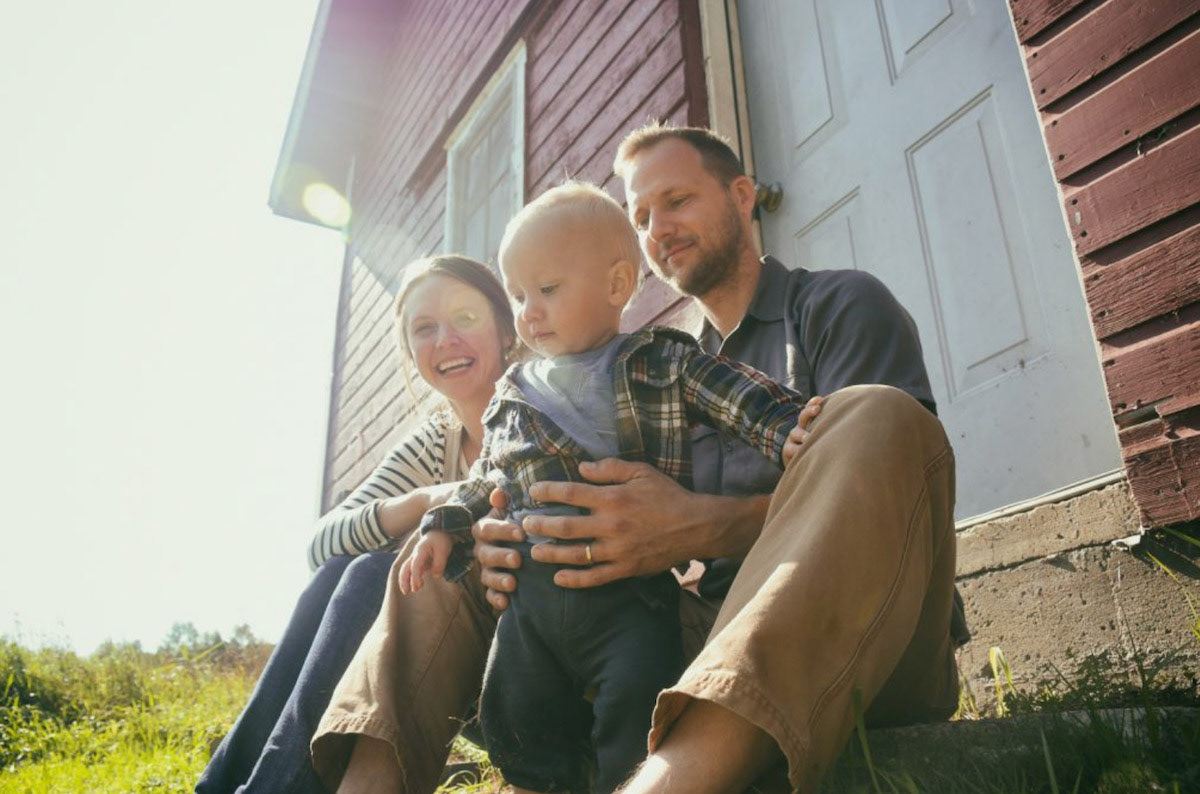
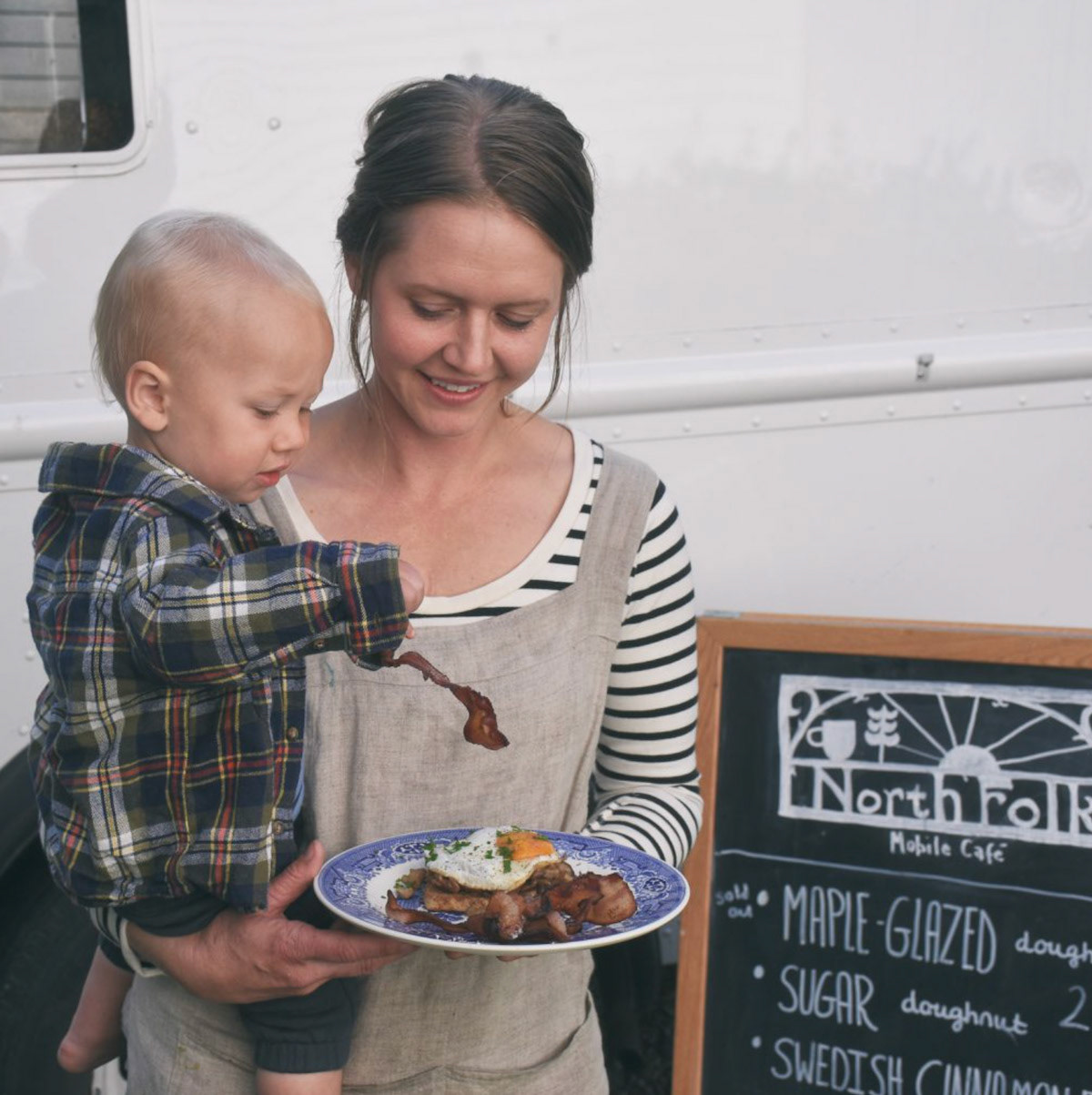
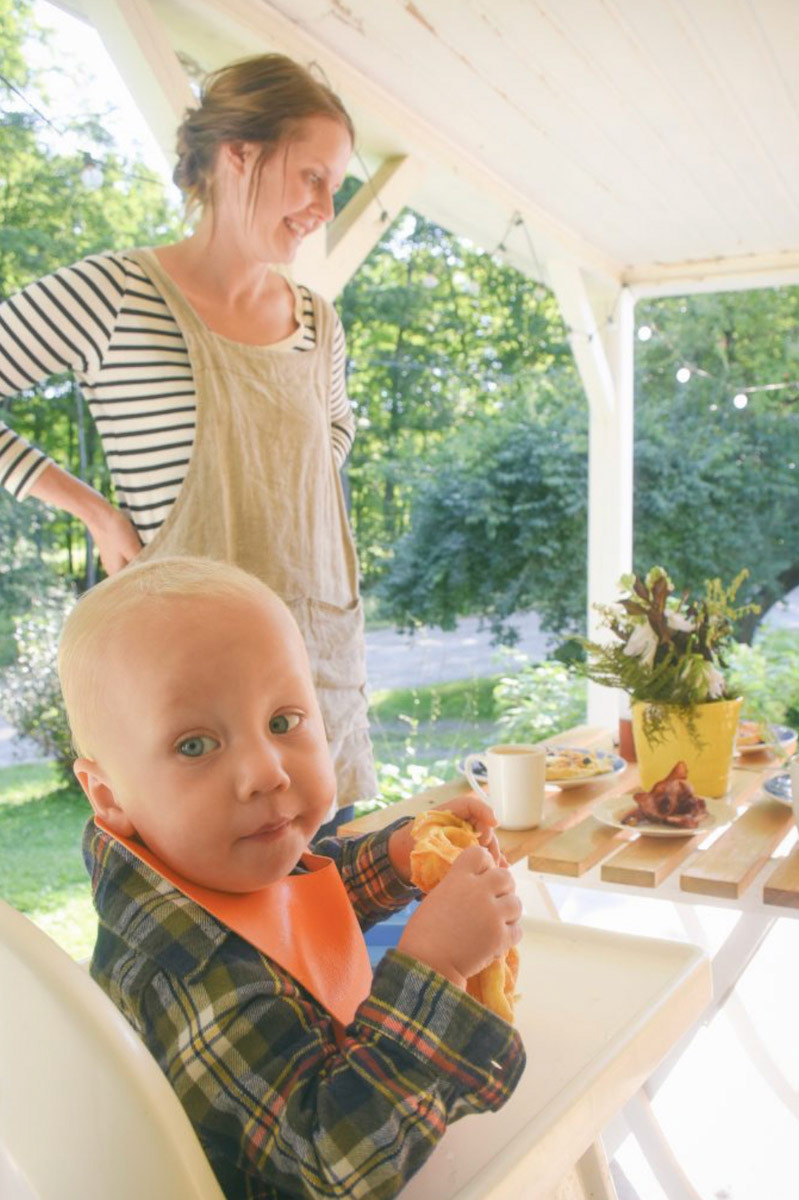
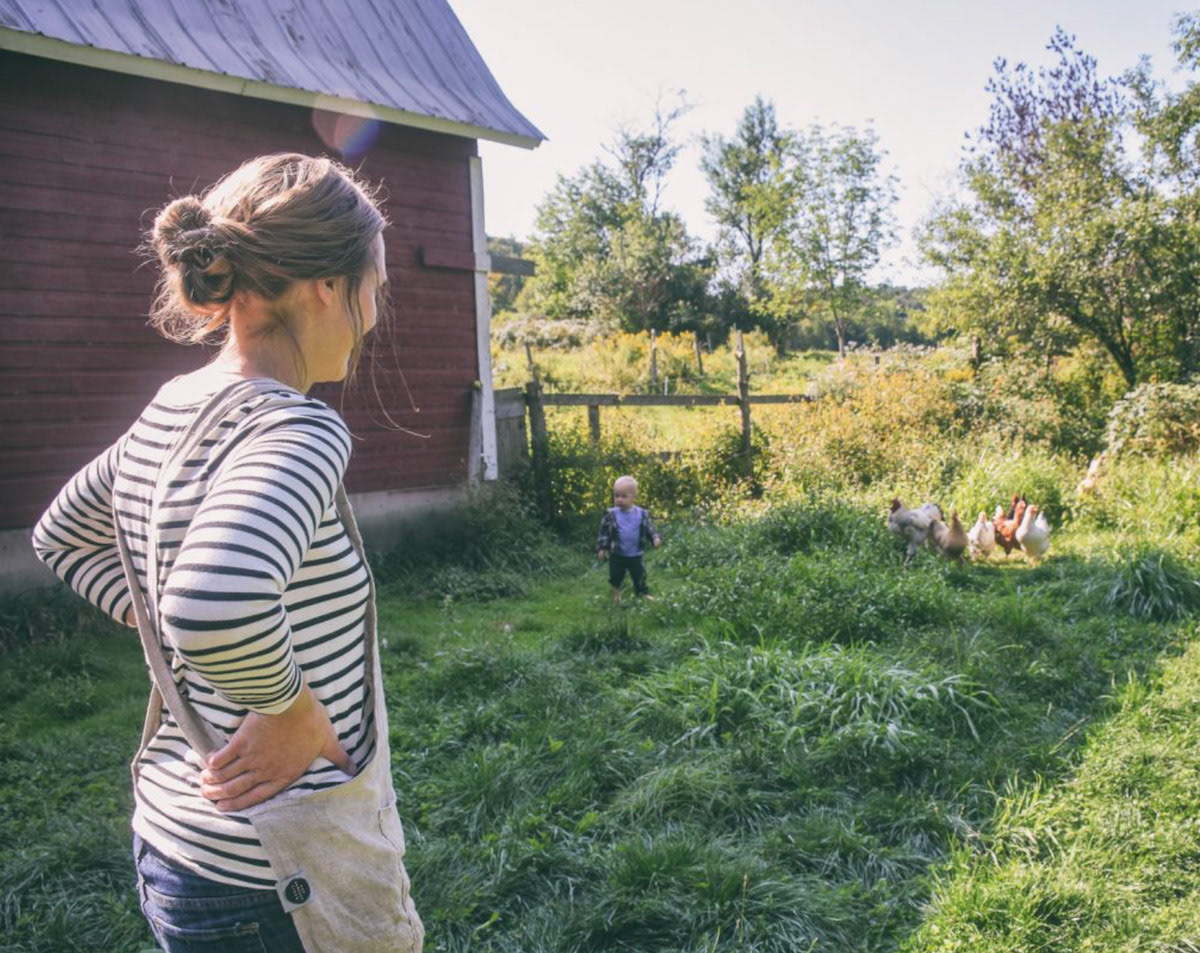
Between raising a toddler, working at the general store, and running the truck and catering business, how do you manage it all?
Just by a thread. I don’t have a day off and I don’t sleep enough, but summer in Vermont is fast and furious, so I’ve just got to do it. In the winter, the pace of life is going to slow down, and Sam’s going to get older and be in daycare eventually, so I’m just pushing through now. The level of planning for a food truck is much more difficult than working in a regular kitchen where you’ve got all your equipment, and everything else you need is right there. With this business, I have to schlep things back and forth, I have to load the truck with everything I need, and then, once it’s done, I have to unload it to wash all the dishes. Ordering is also an issue, because most people don’t deliver and I have to run around to pick up everything. I’ll usually take Sam with me in the car when I’m picking up ingredients, but I try to do most of my work late at night when he’s asleep or early in the morning.
Would you like to set up shop in a permanent location one day?
Definitely. The reception’s been great so far, and customers keep asking, “When are you going to open a café?” The community has a real need for a place to gather, and I’d like to be able to provide that. I’d also like to be able to do more baking. I can’t really do that out of the truck.
What do you enjoy most about living and working in the Northeast Kingdom?
It’s obviously a very beautiful place to live, but the most special thing about it is the strong sense of community. I think it has to be strong, because out here you’re all you have. It’s pretty amazing, the support we’ve seen with this business. If I need help watching Sam, I’ve got ten people I can call. There’s always somebody to help, and everybody’s very capable. Everybody knows each other. There’s something really special about the community here.
James Napoli is the founder of Junction Magazine. James has since moved to Minnesota and all content is managed by a collective of artists. Read more about them here.
